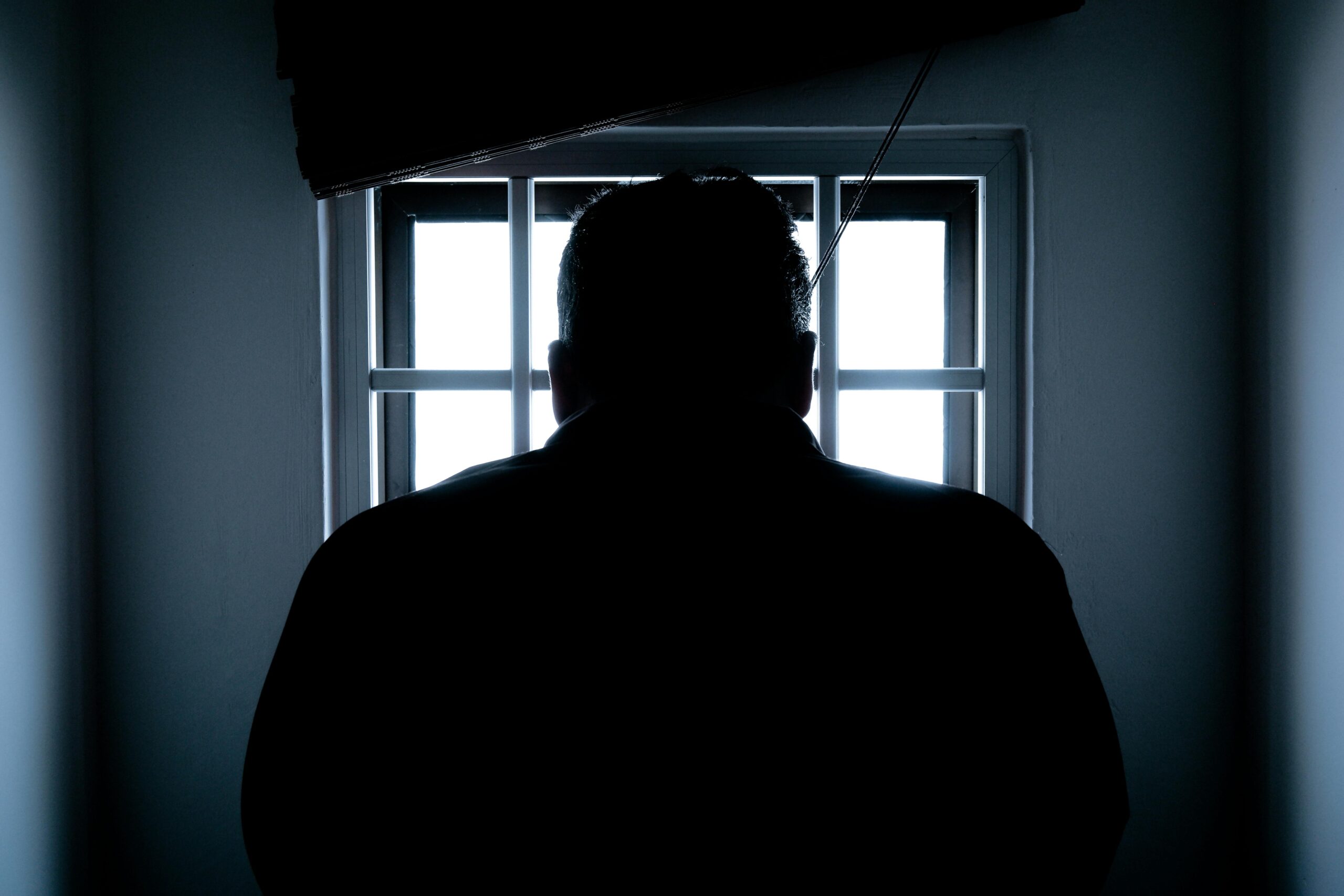Solitary confinement law NYC is a complex and pressing issue that raises many questions about the treatment of inmates within the New York City correctional system. Have you ever wondered how solitary confinement impacts mental health and rehabilitation? Today, more than ever, advocates are pushing for reforms that address the psychological effects of isolation. With recent changes in legislation, knowing the ins and outs of solitary confinement law in NYC is crucial for anyone concerned about justice and human rights. This post will explore the latest updates, including the legal ramifications and the conditions that lead to solitary confinement. What does the law say about the duration and conditions of solitary confinement? Are there alternatives that could promote healthier environments for inmates? As public awareness grows, so does the urgency for comprehensive reform. Join us as we delve into the critical aspects of solitary confinement law NYC and uncover the truths behind this controversial practice. Stay informed and engaged, because understanding these laws is vital for fostering a more humane criminal justice system.
Understanding Solitary Confinement Laws in NYC: Key Changes You Should Be Aware Of in 2023
Understanding Solitary Confinement Laws in NYC: Key Changes You Should Be Aware Of in 2023
Solitary confinement has been a controversial subject in the American justice system for a long time, and in New York City, recent changes to the law in 2023 has brought it back into the spotlight. If your curious about how these changes may affect inmates or the legal system as a whole, you’re at the right place. Understanding solitary confinement laws in NYC is critical for anyone involved in the legal field or those who have loved ones impacted by these laws.
What is Solitary Confinement?
Solitary confinement means that prisoners are kept in a small cell for 22 to 24 hours a day with very limited human contact. This is often used as a punishment for rule violations or for the protection of inmates from others. However, the psychological effects of solitary confinement can be severe, leading to anxiety, depression, and other mental health issues.
Historically, solitary confinement has faced a lot of criticism, with various reports showing that prolonged isolation can exacerbate existing mental health problems. In NYC, the conditions and laws surrounding solitary confinement has seen significant scrutiny and changes over the years.
Key Changes in NYC Solitary Confinement Laws in 2023
In 2023, New York City made some pivotal changes to the solitary confinement laws, aiming to improve conditions for inmates and reduce the use of isolation. Here are some of the key changes:
- Restrictions on Duration: The new law limits the time an inmate can spend in solitary confinement to a maximum of 15 consecutive days. Previously, inmates could be kept in solitary for much longer periods.
- Enhanced Review Process: There’s now a mandatory review process that must take place after every 10 days of solitary confinement. This means that if an inmate is in solitary, their circumstances will be reevaluated regularly.
- Increased Transparency: The NYC Department of Corrections is now required to keep public records on the use of solitary confinement, allowing for better scrutiny and accountability.
- Mental Health Considerations: Inmates with mental health issues are less likely to be placed in solitary confinement, reflecting a growing understanding of the need for appropriate treatment rather than isolation.
Why These Changes Matter
These changes are not just legal adjustments; they reflects a shift towards more humane treatment of inmates. The emphasis on mental health and the review process is a step towards understanding that prolonged isolation can lead to severe mental health issues, which can ultimately affect recidivism rates.
Comparison: Solitary Confinement Laws in NYC vs. Other States
While NYC has made these strides, it’s important to look at how it compares to other jurisdictions. For instance:
- California: Has similar restrictions but has been criticized for the conditions in its prisons. Solitary confinement can last longer, especially for gang affiliations.
- Texas: Allows solitary confinement for longer periods and has less stringent review processes, exposing inmates to greater risk of long-term psychological harm.
- Illinois: Recently passed laws similar to NYC’s, focusing on mental health and reducing isolation.
Practical Examples of Implementation
Let’s look at a few practical examples of how these laws are applied:
- Case of Inmate A: Previously held in solitary for 30 days for a minor violation, Inmate A now could be released after 15 days if reviewed as not being a threat to others.
- Mental Health Focus: Inmate B, who has a diagnosed mental health condition, is now placed in a treatment program rather than solitary confinement, highlighting the law’s focus on rehabilitation.
- Public Reporting: The NYC Department of Corrections publishes monthly reports on solitary confinement statistics, ensuring public awareness and accountability.
Conclusion
Understanding the solitary confinement laws in NYC is crucial for those navigating the legal system or advocating for inmates’ rights. The changes in 2023 signify a movement towards reform, focusing on mental health and humane treatment of inmates. If you or someone you know is affected by these changes, seeking legal counsel may be wise to navigate the complexities of the new laws and their implications. Always stay informed about your rights and the evolving landscape of solitary confinement regulations in NYC.
The Impact of Solitary Confinement on Mental Health: What NYC Studies Reveal
The effects of solitary confinement on mental health is a topic that has gain significant attention in recent years, especially in New York City. With studies emerging that highlight the severe consequences of isolation, it is crucial to understand not only the psychological toll it takes on individuals, but also the legal framework surrounding solitary confinement in NYC. Understanding these issues is essential for anyone wanting to navigate the complexities of the legal system or simply to be informed about human rights in the correctional context.
The Psychological Toll of Solitary Confinement
Solitary confinement, often referred to as “the hole,” is a practice where inmates are isolated from the general population, typically for 22 to 24 hours a day. Numerous studies show that this kind of isolation can lead to serious mental health issues.
- Anxiety and Depression: Inmates in solitary often experience heightened levels of anxiety and depression, which can worsen over time.
- Psychotic Symptoms: Some individuals may develop symptoms akin to psychosis, such as hallucinations or delusions.
- Cognitive Decline: Extended periods of isolation can lead to difficulties with memory and decision-making.
- Increased Risk of Self-Harm: Studies indicate a higher likelihood of self-harm among inmates in solitary confinement.
According to a 2018 study conducted by the NYC Department of Correction, nearly 60% of individuals in solitary confinement reported experiencing severe anxiety and depression. These findings have raise concerns among mental health professionals and advocates for reform.
Historical Context of Solitary Confinement Laws in NYC
The use of solitary confinement in New York has a long history, but the legal landscape has began to shift in recent years. Historically, solitary confinement was seen as a necessary tool for maintaining order within prisons. However, growing evidence of its negative impact on mental health has prompted calls for change.
- 1990s: The rise of “supermax” prisons, which emphasized isolation.
- 2015: The NYC Board of Correction introduced reforms to limit the use of solitary confinement, especially for vulnerable populations like juveniles.
- 2020: New legislative measures aimed at further reducing the use of solitary confinement were proposed, reflecting a growing recognition of its detrimental effects.
These changes in the law reflect a broader societal understanding of the need for humane treatment of incarcerated individuals.
Current Solitary Confinement Law in NYC: What You Need to Know
Understanding the current laws around solitary confinement in New York City is crucial for both legal professionals and the general public. Here are some key points to consider:
- Limitations on Duration: The NYC Department of Correction has impose limits on how long an inmate can be held in solitary confinement, especially for non-violent offenses.
- Vulnerable Populations: There are specific protections for youth, pregnant individuals, and people with mental health issues, who should not be placed in solitary confinement.
- Review Process: Inmates in solitary confinement now have a right to a review of their status, ensuring that their placement is justified and not merely punitive.
These laws signify a move toward a more rehabilitative approach, rather than purely punitive measures.
The Broader Implications for Mental Health Advocacy
The discussion around solitary confinement isn’t just about the individuals directly affected; it also raises questions about the broader implications for mental health advocacy.
- Advocacy Groups: Organizations like the Vera Institute and the ACLU are actively working to reform solitary confinement laws, emphasizing the need for mental health care in correctional facilities.
- Public Awareness: Increased public awareness has led to more discussions about the ethical implications of solitary confinement and its effects, prompting community engagement and policy changes.
- Alternatives to Solitary: Many advocates are pushing for alternatives to solitary confinement, such as restorative justice programs or enhanced mental health services, which could provide better outcomes for inmates.
Practical Examples of Impact
Looking at real-world examples can highlight the impact of solitary confinement laws. For instance, in 2019, a case was reported involving an inmate who had spent over a year in solitary confinement and subsequently required extensive mental health treatment after release. This underscores the long-term consequences of isolation.
Moreover, a recent NYC initiative aimed at providing mental health support in jails has shown promising results, with a notable decrease in the use of solitary confinement since its implementation.
By understanding the impact of solitary confinement on mental health and the evolving laws surrounding it, individuals can better advocate for humane treatment within the correctional system. The conversation around solitary confinement is ongoing, and continued research and reform are essential for improving the lives of those affected by these practices.
Is Solitary Confinement Legal in NYC? Exploring the Current Legal Landscape and Recent Reforms
Is solitary confinement legal in New York City? This is a question that has gained much attention in recent years, especially as reform movements advocate for changes in prison practices. Solitary confinement can have severe mental and physical health impacts, leading many to seek clarity on the regulations surrounding its use. So, what’s the current legal landscape like? And what recent reforms are influencing solitary confinement law NYC today?
Understanding Solitary Confinement
Solitary confinement refers to the practice of isolating inmates in a small cell for 22 to 24 hours a day, with minimal human contact. It often used for punishment, safety, or to control inmate behavior. Critics argue that this practice can cause long-lasting psychological harm. Historically, solitary confinement has been a controversial issue in prisons and jails across the United States, including New York City.
Current Legal Framework
In New York City, solitary confinement is legal, but there are strict regulations that govern its use. The Department of Corrections and Community Supervision (DOCCS) oversees the application of solitary confinement. Key points regarding the legal framework include:
- Duration: Solitary confinement can last for varying lengths of time; however, inmates should not be kept in isolation indefinitely.
- Conditions: Conditions must meet certain standards, including access to basic necessities like food, water, and hygiene.
- Review Process: Regular review of an inmate’s status in solitary confinement is required, typically every 30 days.
Recent Reforms
In recent years, New York State has seen significant reforms aimed at reducing the use of solitary confinement. Some of the notable changes include:
- Limits on Duration: Legislation passed in 2019 limits the duration of solitary confinement to 15 consecutive days. This is a significant reduction from previous practices.
- Youth and Vulnerable Populations: New laws prohibit the use of solitary confinement for juveniles and individuals with serious mental health issues. This is an important step towards protecting vulnerable populations.
- Increased Oversight: Enhanced oversight measures have been implemented to ensure compliance with regulations surrounding solitary confinement, such as mandatory reporting of incidents.
The Impact of Solitary Confinement
The consequences of solitary confinement on individuals can be severe. Research shows that long-term isolation can lead to a range of mental health issues, including:
- Increased anxiety and depression
- Hallucinations
- Suicidal thoughts
- Difficulty reintegrating into the general population
These effects have prompted many advocates to call for more humane treatment of inmates and the reduction of solitary confinement as a disciplinary tool.
Comparison with Other States
New York City’s approach to solitary confinement is not unique; other states have also made efforts to reform their practices.
| State | Current Law on Solitary Confinement | Key Differences |
|---|---|---|
| New York | Limits solitary confinement to 15 days, bans for juveniles. | Recent reforms have strengthened regulations. |
| California | Restricts use for gang affiliation; focuses on alternatives. | More emphasis on rehabilitative programs. |
| Illinois | Bans isolation for over 10 days; focuses on mental health. | Prioritizes mental health services for inmates. |
What You Need to Know Today
If you or someone you know is facing issues related to solitary confinement in New York City, it is essential to understand the current laws and available resources. Here are some key points to consider:
- Legal Assistance: Consulting with an attorney who specializes in prison law can provide guidance on navigating the complexities of solitary confinement regulations.
- Advocacy Groups: Numerous organizations advocate for reform and provide support for individuals affected by solitary confinement. They can offer valuable resources and support.
- Mental Health Resources: Inmates subjected to solitary confinement often require mental health evaluations and support upon release. Accessing these resources is crucial for rehabilitation.
The legal landscape surrounding solitary confinement in NYC is evolving. With ongoing reforms and advocacy efforts, there is hope for a more humane approach to incarceration. Staying informed about these changes is essential for understanding your rights and the rights of others in the correctional system. As discussions continue, the focus on mental health and rehabilitation will likely shape the future of solitary confinement law NYC. It’s a complex issue that requires ongoing attention and action to ensure justice and humane treatment for all inmates.
7 Essential Facts About Solitary Confinement in NYC: What Every Advocate Should Know
Solitary confinement is a controversial practice that has raised numerous questions about its ethical implications and legal standing, especially in New York City. For advocates, understanding the ins and outs of solitary confinement law in NYC is crucial. Here are 7 essential facts that every advocate should know about this complex issue.
1. Definition of Solitary Confinement
Solitary confinement involves isolating an individual in a small cell for 22 to 24 hours a day, with limited human interaction. It is often used in correctional facilities, but what many people don’t realize is that different jurisdictions have different practices and definitions. In New York, solitary confinement can be a routine punishment for various infractions, not just serious crimes.
2. Legal Framework Governing Solitary Confinement in NYC
In New York, the legal framework governing solitary confinement is evolving. The New York State Correction Law and various court rulings provide a backdrop for how solitary confinement can be administered. In recent years, advocates pushed for reforms that limit the use of solitary confinement, especially among vulnerable populations such as juveniles and mentally ill inmates.
3. Recent Legislative Changes
In 2021, New York passed the “HALT Solitary Confinement Act,” which aimed to reduce the use of solitary confinement in prisons and jails statewide. This law significantly limits the duration of solitary confinement and mandates alternatives to isolation. Advocates and legal professionals should stay updated on these changes since they directly impact how solitary confinement is applied.
4. Psychological Effects of Solitary Confinement
Studies have shown that solitary confinement can have severe psychological effects on inmates. Some common issues include:
- Anxiety
- Depression
- Hallucinations
- Suicidal thoughts
The longer an individual spends in isolation, the more likely they are to experience these mental health challenges. Advocates should be aware of these potential consequences when working with individuals affected by solitary confinement.
5. Impact on Vulnerable Populations
Certain groups are particularly susceptible to the adverse effects of solitary confinement. These include:
- Juveniles
- Individuals with mental health issues
- LGBTQ+ individuals
In NYC, the law now requires additional safeguards for these populations. For example, juveniles must be placed in alternative settings rather than solitary confinement, reflecting a shift toward more humane treatment.
6. Comparison with Other States
When comparing solitary confinement laws in NYC to other states, significant differences can be observed. Some states have moved toward abolishing solitary confinement altogether or have put strict limits on its use. For instance:
- California has implemented reforms limiting solitary confinement for youth.
- Colorado has introduced legislation to reduce the use of isolation for individuals with mental health issues.
This variability reflects the ongoing debate about the efficacy and morality of solitary confinement. Advocates can use these examples to argue for further reforms in New York.
7. Resources for Advocates
If you’re an advocate looking to understand or challenge solitary confinement practices, several resources are available. Here are some organizations and materials you might find helpful:
- New York Civil Liberties Union (NYCLU): Offers insights into current laws and advocacy efforts.
- The Vera Institute of Justice: Provides research and policy recommendations related to solitary confinement.
- The National Alliance on Mental Illness (NAMI): Focuses on the intersection of mental health and incarceration.
Being informed about these resources can help advocates effectively navigate legal challenges related to solitary confinement.
As the conversation around solitary confinement continues to evolve in New York City, staying informed is crucial for advocates. Understanding the legal framework, the psychological impacts, and the recent legislative changes can equip you with the tools necessary to advocate for those affected by these practices. Solitary confinement law in NYC is complex and constantly changing, making it essential for advocates to remain engaged and informed.
Navigating the Controversy: How NYC’s Solitary Confinement Policies Affect Incarcerated Individuals and Their Families
Navigating the Controversy: How NYC’s Solitary Confinement Policies Affect Incarcerated Individuals and Their Families
In the bustling heart of New York City, there exists a dark and controversial aspect of the penal system: solitary confinement. This practice, which isolates incarcerated individuals from the general prison population, has been a topic of heated debates among lawmakers, activists, and families. Understanding the implications of solitary confinement law in NYC is crucial for anyone concerned about justice, human rights, and the well-being of individuals in the correctional system.
Historical Context of Solitary Confinement in NYC
Solitary confinement has a long history, dating back to the 19th century when it was introduced as a means of reform through isolation. However, the reality of solitary confinement today differs significantly from its original intentions.
- Initially, it was seen as a way to encourage reflection and rehabilitation.
- In modern times, it has often been criticized for leading to severe mental health issues and exacerbating the already difficult circumstances faced by incarcerated individuals.
In NYC, the policies surrounding solitary confinement have undergone various changes, especially in response to public outcry and legal challenges. In 2015, the NYC Board of Correction implemented new regulations aimed at reducing the use of solitary confinement but issues still persist, and many believe that these laws need further reform.
Solitary Confinement Law NYC: Key Aspects
Understanding the legal framework surrounding solitary confinement in New York City is essential for those navigating these complex waters. Here are some critical points:
- Definition: Solitary confinement, often referred to as “restrictive housing,” involves isolating individuals in a small cell for 22 to 24 hours a day, with little to no human interaction.
- Duration: According to NYC law, individuals can be placed in solitary confinement for various reasons, including disciplinary infractions or safety concerns. However, the law mandates that individuals with serious mental health issues be exempt from this practice.
- Legal Limits: The NYC Board of Correction has set limits on how long individuals can be held in solitary confinement, but some advocates argue these limits are still too lenient.
Impact on Incarcerated Individuals
The effects of solitary confinement on incarcerated individuals are profound and troubling. Research has consistently shown that isolation can lead to numerous psychological issues, such as:
- Anxiety
- Depression
- Post-Traumatic Stress Disorder (PTSD)
- Increased risk of self-harm and suicidal behavior
Many individuals report feeling disconnected from reality and struggle to reintegrate into society after being released. It is important to note that the impact of solitary confinement does not end with the individual; it also deeply affects their families.
The Ripple Effect on Families
The families of those incarcerated in solitary confinement often endure emotional and financial strain. Here’s how solitary confinement policies can affect families:
- Communication Issues: Families may have limited opportunities to communicate with their loved ones, as phone calls and visits can be restricted.
- Emotional Distress: The isolation of their loved ones can lead to feelings of helplessness, anxiety, and depression for family members.
- Financial Burdens: Families may face unexpected costs associated with legal representation or mental health support for their loved ones.
Advocacy and Reform Efforts
Numerous organizations and advocates are working tirelessly to reform solitary confinement laws in NYC. They emphasize the need for humane treatment and rehabilitation rather than punishment through isolation. Some notable organizations include:
- The New York Civil Liberties Union (NYCLU)
- The Vera Institute of Justice
- The Correctional Association of New York
These groups often conduct research, raise public awareness, and lobby for legislative changes to ensure the rights of incarcerated individuals are protected.
What You Need to Know Today
If you or a loved one is navigating the complexities of solitary confinement law in NYC, it’s crucial to stay informed. Here are some tips:
- Consult Legal Experts: Engaging with attorneys who specialize in correctional law can provide guidance and support.
- Know Your Rights: Understanding the legal protections in place can empower families and individuals to advocate for humane treatment.
- Stay Involved: Community activism can help drive change. Attend local meetings or engage with advocacy groups focused on prison reform.
The issue of solitary confinement in NYC is far from black and white; it involves many shades of grey. The ongoing debates and legal reforms surrounding solitary confinement highlight the need for a more compassionate approach towards those incarcerated. As the city grapples with these issues, it’s essential for families, advocates, and legal practitioners to continue the conversation and push for change that respects the dignity and humanity of every individual.
Conclusion
In summary, the discussion surrounding solitary confinement laws in New York City highlights the urgent need for reform within the penal system. Key points include the psychological and physical impacts of prolonged isolation on inmates, the disproportionate effect on vulnerable populations, and the legal and ethical implications of such practices. Recent legislative efforts aim to limit the use of solitary confinement, particularly for juveniles and individuals with mental health issues, reflecting a growing recognition of the need for humane treatment in correctional facilities. As we continue to confront the realities of mass incarceration, it is imperative for advocates, policymakers, and the public to engage in dialogue about the effectiveness and morality of solitary confinement. Calling on New Yorkers to support initiatives that promote rehabilitation over punishment can pave the way for a more just and equitable system, ensuring that human rights are upheld for all individuals, regardless of their circumstances.



